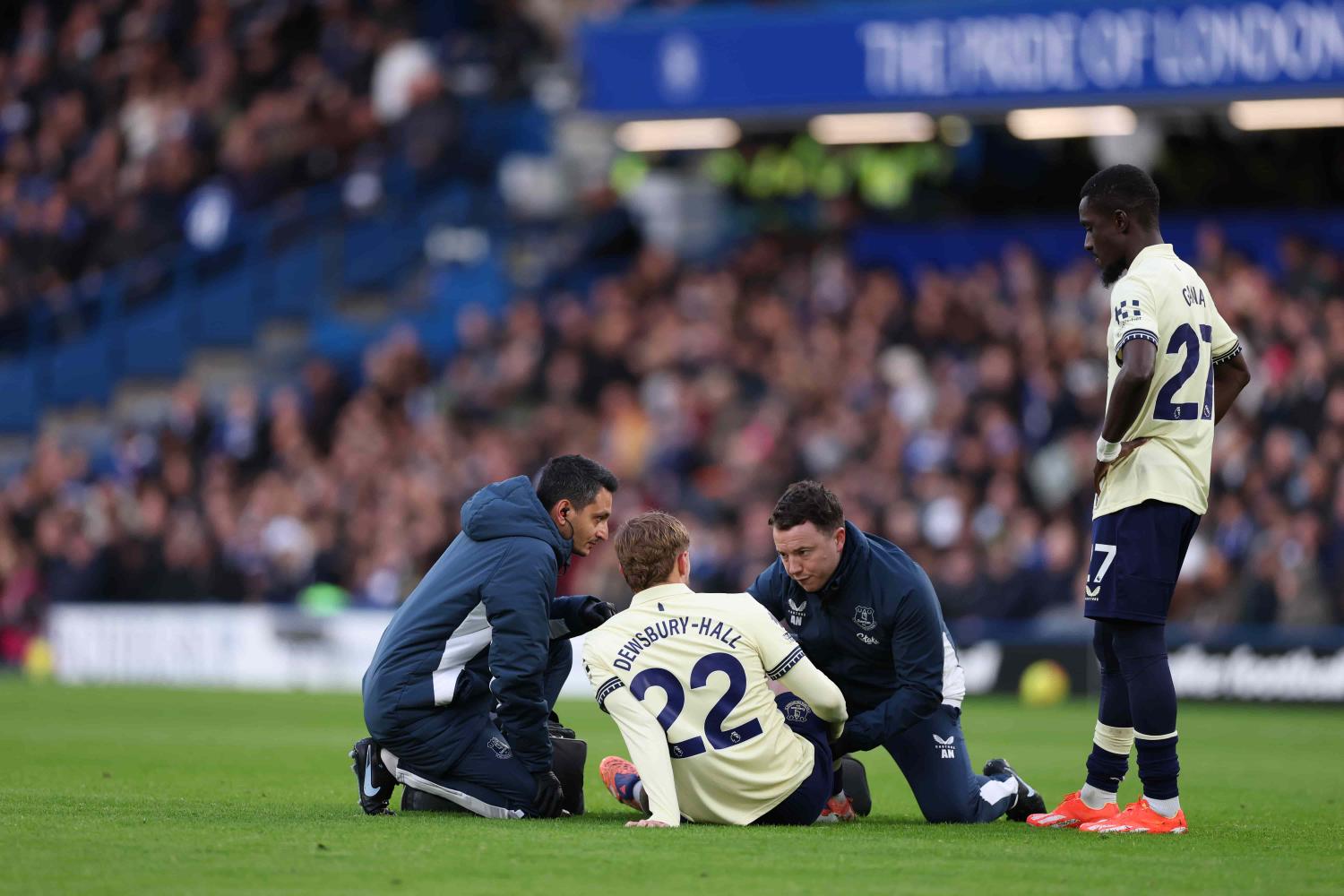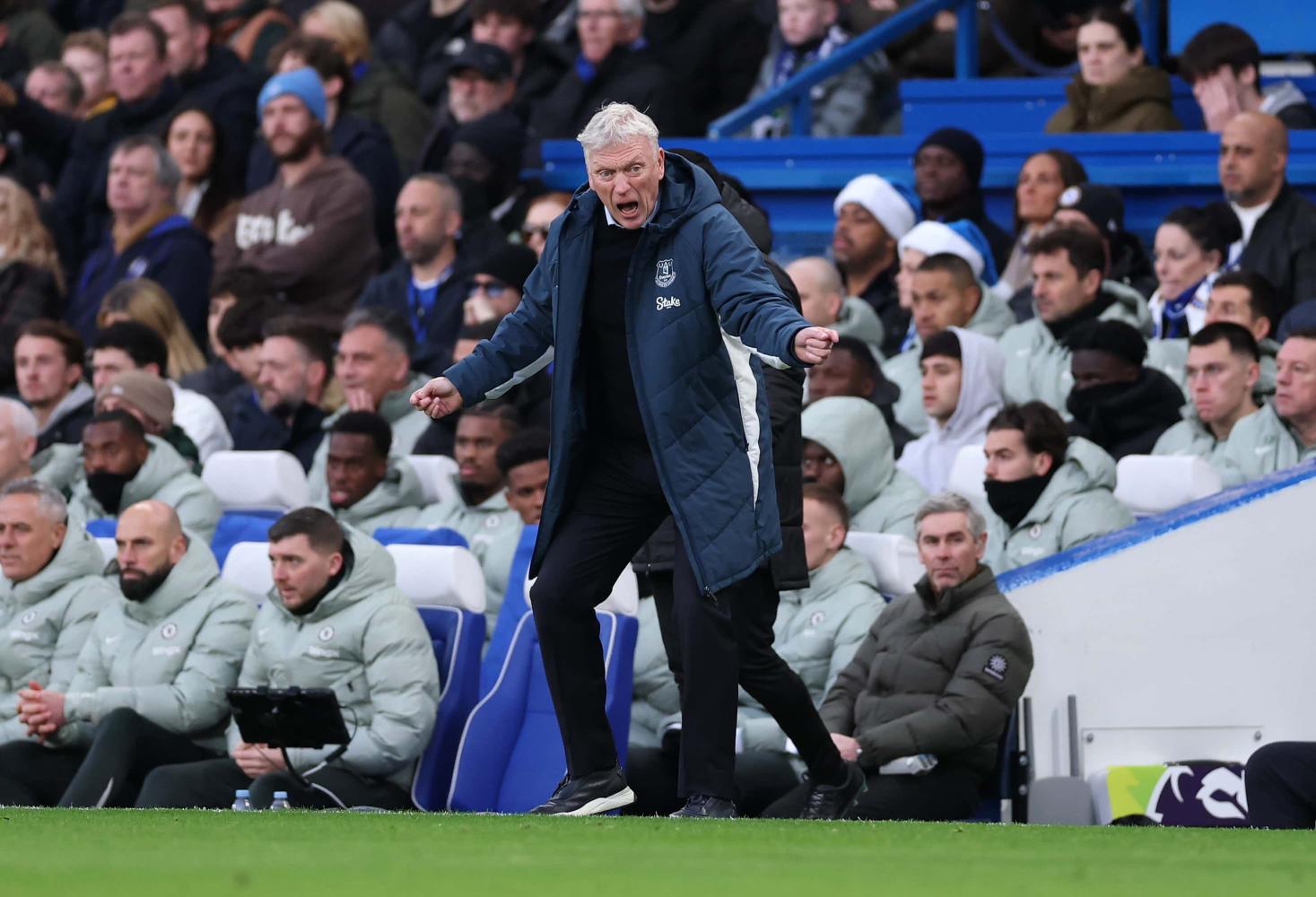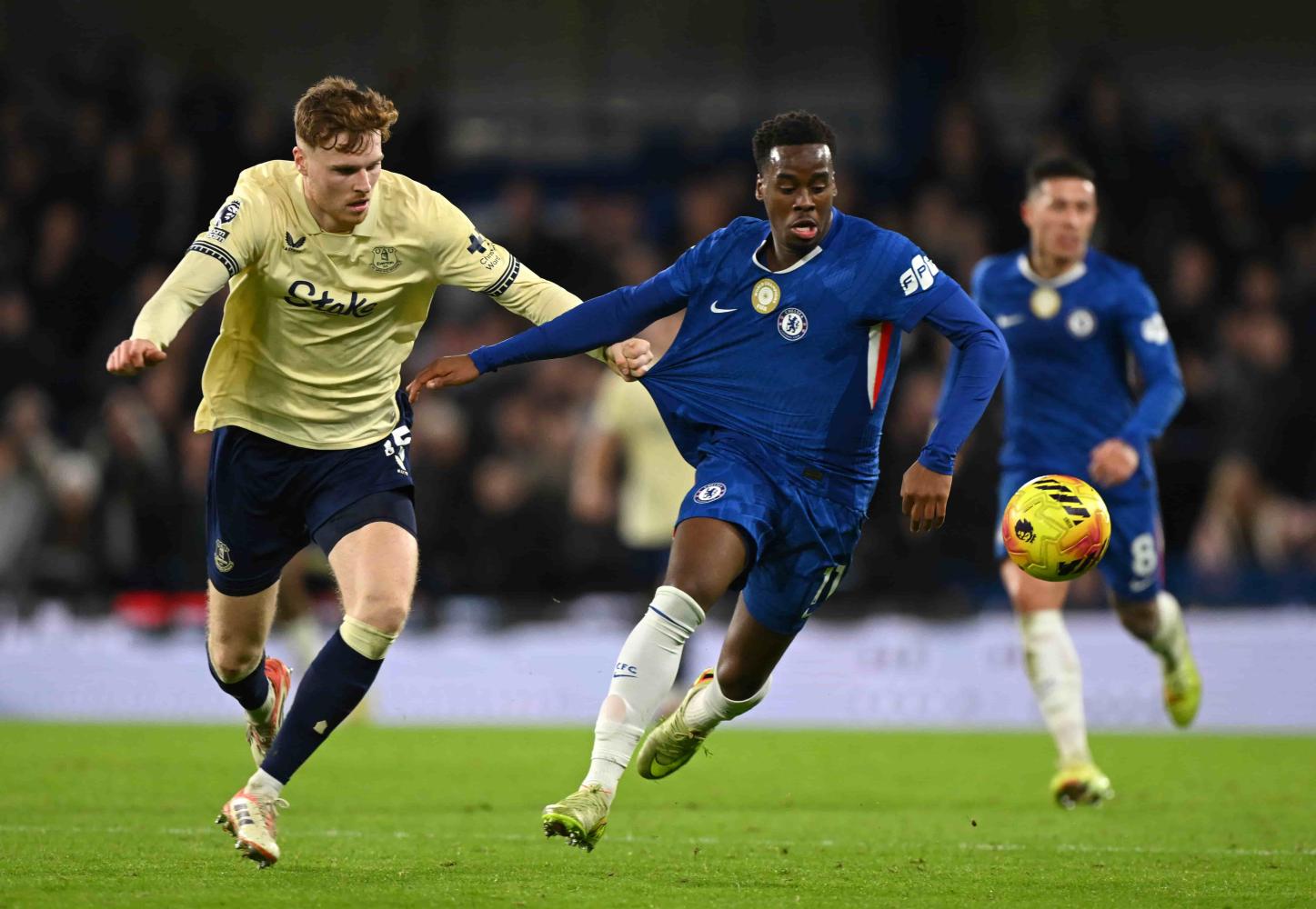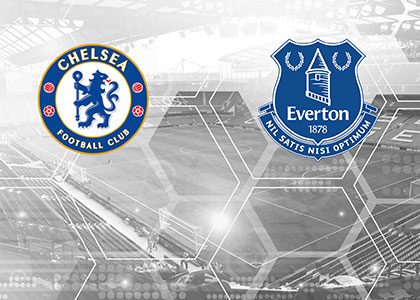In Memoriam: An Evertonian gives his life in the Iraq campaign
There have been a few stories involving Everton during the war
in Iraq, most notably the British tank apparently displaying the message
"Rooney's going to get you" and the Evertonian soldier who took
four bullets in his helmet and survived. This is a more sobering reminder
that Blues like you and I who, under normal circumstances, would be going
to the game are putting themselves in harm's way in a foreign land and,
like Matty Hull, making the ultimate sacrifice. For Queen and country The gunner's seat of a Scimitar armoured car is a claustrophobic place, smelling of grease and diesel oil. Made by Alvis in Coventry about 30 years ago, there isn't much new technology in evidence: on your right is the lever that swings the turret around, and in your left hand is the black grip used to fire either shells or machine-gun rounds at the targets you see in the gunsights that are fixed a few inches in front of your nose. You are wedged in by your body armour. The top of your helmet is probably just visible above the rim of the hole through which you lower yourself into your seat. Your feet are probably touching the back of the driver and all that separates you from the vehicle commander on your left are the 16 racks of tightly packed 30mm shells, six to a row. There is more machine-gun ammunition behind you, held in by webbing. There is little fresh air and, in the Iraqi desert, it is very hot. This was the kind of seat Matty Hull died in on 28 March, two days before his 26th birthday. His comrades will honour Lance Corporal of Horse Matty Hull today, when
some 350 of them, recalled from Easter leave – wearing their brown
"No 2" uniforms, because "No 1s" are never, ever,
worn at funerals – will march slowly alongside and behind his coffin
through the narrow streets of Windsor, in the shadow of the great castle,
to the Holy Trinity military church. This is a man who, in the words of his mother Mandy, was "the perfect son", and who, to his wife Susan, was the "most exceptional man I have ever met". And his death was, according to his commanding officer, who slowly shakes his head as if in disbelief, "a waste, a terrible waste". But Matty Hull was neither a leader of men nor a heroic figure. He didn't storm any barricades or rescue any comrades. He was just a good and decent man, doing a job he loved and who died in a manner many would consider the most pointless of all and in a war half the world believed was unnecessary. The road that led to Matty Hull's death in the Iraqi deserts began in the quiet village of East Knoyle, on the Dorset and Wiltshire border. Matthew, known as Matty, was born in 1977, in a Britain celebrating the Queen's Silver Jubilee with a mixture of patriotism and punk rock. His mother Mandy was a 16-year-old shop assistant, his father Richard Hull a worker in a local factory. "He was such a wonderful, lovely child. He was brilliant. He never caused me any grief or pain," says Mandy, now 43. By all accounts, it was a happy, normal rural existence: local schools and playing with his friends in the quiet lanes and woods on their bikes. There were cats and dogs and rabbits at home. "Right from the beginning, he had these toy soldiers; he liked to carry them around, like they do," says Mandy. "He loved them and always, always wanted to be a soldier." When he was 12, Matty joined the local Army cadets. By now he was an energetic boy who, remembers Mandy, gave his all to everything he did. Soon he was a sergeant in the cadets. He was not academic, so soldiering seemed the obvious career. Mandy saw no reason to discourage him. At secondary school, aged 13, Matty first met his future wife, Susan.
"I just remember this bloke in trainers." The couple would be
together, off and on, for the rest of his life. As teenagers they didn't
date but became friends as a part of a bigger crowd. But Susan had her own career in mind and she went off to university at Southampton, with the aim of becoming a teacher. They saw each other at weekends and holidays. By now, Matty Hull was part of a large extended family: his mother and father had divorced in the early 1980s after Mandy had given birth to Matty's sister, Emily, now 21. And Mandy had a new partner, with whom she had two more children: Laura, now 14 and Jack, now 10, who suffers from Down's syndrome. His father also had two more children with his new partner, so there were many happy occasions, celebrations and birthdays. Matty, despite his boisterousness and enthusiasm for life, was gentle and careful with Jack. "He was so good with his little brother. Jack's very hard of hearing and we had this family tradition of having a cake and singing Happy Birthday and Jack would keep on singing, perhaps 10 times, and Matty would love that." Over the next five years, Matty was based with the Royal Logistical Corps at Pirbright. The Corps provides back up services for the front line soldiers, unglamorous but vital work: guard duties, burials, looking after PoWs. It took him on two six-month tours: to Bosnia in 1997 as a dog handler and to Kosovo on peace-keeping duties in 1999. In early 2000, Matty proposed to Susan, and they married in Tisbury, Wiltshire, in July. It was a big, traditional family wedding, Matty resplendent in his Corps No 1s, Susan in white. They honeymooned in the Greek islands and set up home near Pirbright in an Army house. By now Matty was a corporal and would eventually be selected to be an instructor at Pirbright. Susan, meanwhile, had become a primary school teacher. Life looked good for the newly married couple. They enjoyed nights out with other Army couples and family gatherings in Wiltshire. Matty liked his Sunday lunch, cooked either by his mother or his wife, and a lager or two with his fellow squaddies. When Matty and Susan went out, he always dressed well. "He loved designer clothes, always dressed up, smart casual. He loved shopping with me," says Susan. But this was a young man of boundless energy and enthusiasm. "He was always up for doing something; he never sit around just watching television," says his friend, Lance Corporal "JC" Moses. "He was competitive as well, not a good loser." Mostly, this found an outlet in sport. He was a keen skier, regularly visiting the European slopes with his male friends, and a footballer and supporter of Everton. He represented his regi-ment in both sports. He would run 40 miles a week and do endless press-ups and sit-ups. But Matty, restless and eager, hankered after something more: life in the Corps was not quite what he had in mind when he joined up. In both Bosnia and Kosovo he had arrived after the fighting had stopped; there had been no "contact", to use the military jargon. "He felt what he was doing was not what he had joined the Army and been trained for," says JC. "Matty wanted something a little more front-line, a little more exciting. He wanted to be a fighting soldier." So he applied to transfer to the Household Cavalry, a part of the Army that could hardly be more different from the Corps. The oldest regiment in the Army, combining the Lifeguards and the Blues and Royals, it has been involved in almost every conflict from the Civil War to Iraq, via the Falklands and the Balkans. But to the wider public they are most familiar on ceremonial duties in London, dressed in their blue tunics, wearing helmets topped with red plumes. Four of their members were killed by the IRA bomb in Hyde Park in 1982. Uniquely within the Army, its members rotate between the spit and polish of Whitehall and the sweat and grime of their modern barracks at Windsor, where they train for their role as forward reconnaissance patrols in combat and swap their horses for Scimitar armoured vehicles. Ageing they may be, but Scimitars are fast, durable and mobile, and their probing role, ahead of the main forces, is risky and challenging. This, for Matty, was more like it. Matty took a drop in rank to join the Blues and Royals in March last year, alongside his friend JC. But he had found his true home. "It was what he wanted to do," says Susan. The regiment decided he was an asset and he soon recovered his rank to became Lance Corporal of Horse, equivalent to a full corporal elsewhere. "Matty was a very good soldier; we could see the potential in him and we were very glad to have him," says his commanding officer, Lt Col Mark Van Der Lande. "He was a great asset. Although he was young, he had these qualities which made others look up to him." There was no reason, he says, why Matty would not have risen up the ranks of non-commissioned officers. For the immediate future, Matty became the gunner in a three-man Scimitar crew, the man who fired the cannon and the machine-gun. But the Blues and Royals gave him something else, too – an outlet for his growing patriotism. "Matty would stand up and salute when the Queen came on the television," says Susan. "It wasn't a joke; he was serious about it." Sometimes, when there was a royal occasion in the offing, he would hang the Union Flag outside the house. The Household Cavalry is the closest of all the regiments to the monarch: they form her personal bodyguard, riding beside the Queen on her official birthday and for the state opening of Parliament. So, as the storm clouds gathered over the winter and the time came for Matty to go off to war with the 100-strong D Squadron, there really weren't any doubts in his or Susan's minds. This was just what you did to serve Queen and country. It was what you were trained for. They didn't really talk: "He explained what their role was likely to be, but that was it. I knew it was a dangerous job, but there's stuff you don't need to know really." The troops left on 11 February. Matty rang a few times to send his love, to catch up on news from home; Susan sent him thinner socks, some Haribo sweets, and a torch to wear on his head (not yet Army issue) On the Monday before the conflict began, Matty rang his mother. "He said he loved us. Then the line went dead. He ran out of time," says Mandy. The next night, he spoke to Susan: "He said it was probably the last time he would be able call me. He said I shouldn't worry and that I was to keep my head up. He said he loved me." He had promised her a holiday in the Maldives when he returned; they had planned to start a family. It was the last time they spoke. Over the next week, Matty was part of the British advance into southern Iraq as the Household Cavalry patrols spearheaded the push north from the al-Faw peninsula towards Basra. On Friday 28 March, Matty was in a patrol of three Scimitars on the road 25 miles north of the city when, according to the accounts of his surviving comrades, they came under attack from a US A-10 "tank-buster" plane. Sweeping in at an altitude of no more than about 50m, the pilot began firing from 500m away, his anti-tank rounds peppering the leading two cars. When his Scimitar exploded into flames, Matty Hull stood no chance. It was all the ammunition. His comrades recovered his body from the gunner's seat. There will, of course, be an inquiry. At home, Mandy had telephoned Susan at her Army home near Windsor to say she wanted to come over for the regular briefing by senior officers for wives and family of D Squadron. "Call it mother's instinct, but I just had this feeling that something was wrong. I had bad vibes and I wanted to go and see her." After the briefing, they got a Chinese take-away on the way home. They were eating it when the knock came on the door just after 9pm. Susan blanked out: "I knew what it was, I knew what that knock meant, because you don't get that many late-night callers. I just didn't want to hear the words." But she found the words later to say there was "certainly no better husband, son or brother on this earth". On the Monday, they held a small party to celebrate what would have been Matty's 26th birthday – just some of the family. Mandy baked a cake and they sang Happy Birthday – because it was a family tradition and it was what Matty would have wanted. Jake sang along as well, as he always did. Out there, today, tonight, there are many little boys – this writer's is one of them – who play with their toy soldiers, creating imaginary armies, winning illusionary battles, wholly unaware of the smell of the oil and grease and of the heat and dust of conflict, heedless of the blood and anguish of death and bereavement, simply caught up in the imaginary thrill and excitement of war. It was the kind of thrill and excitement that Matty sought in life. But perhaps the death of Matty Hull will indeed be a reminder that war can also be unnecessary and pointless. © The Independent, 16 April 2003 |








